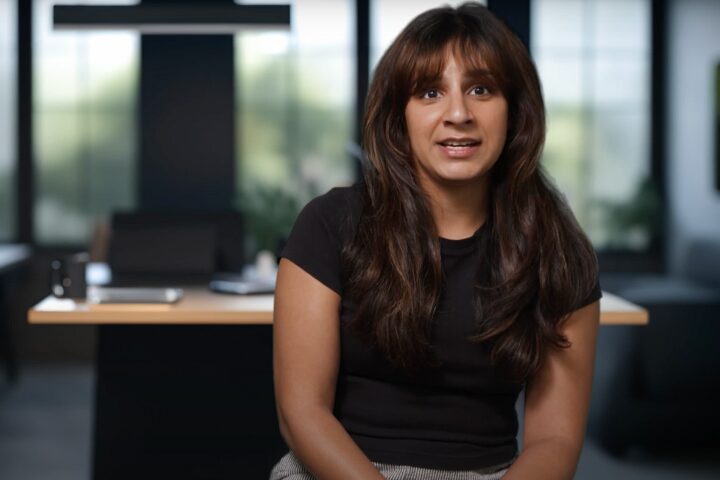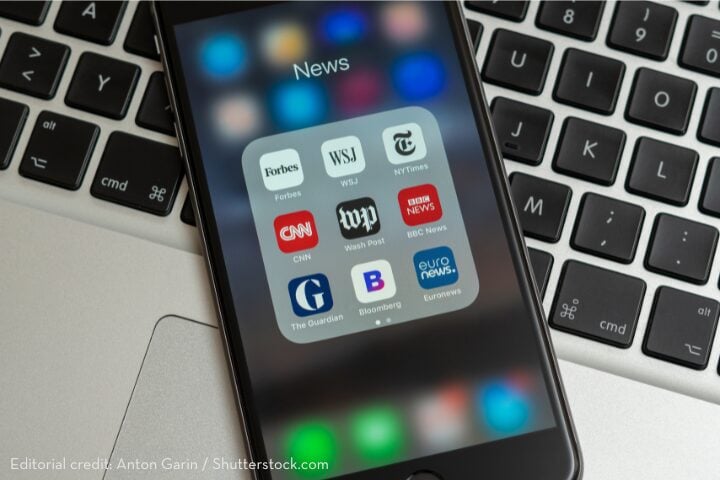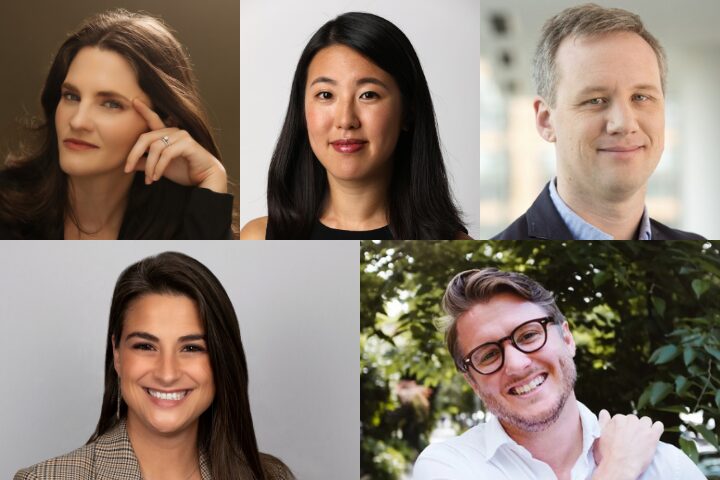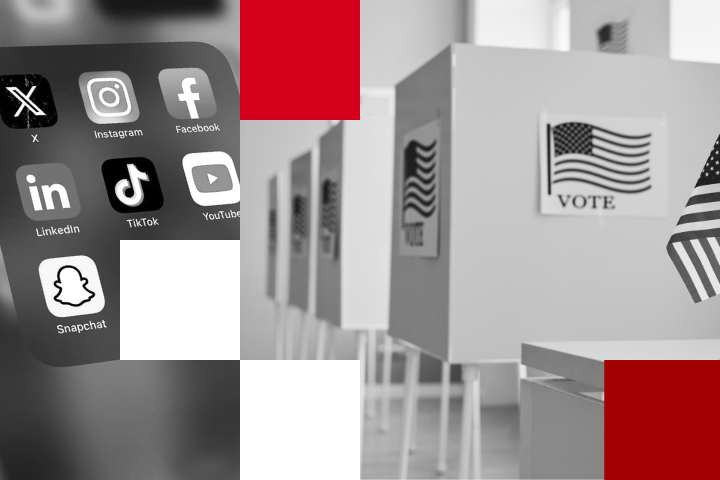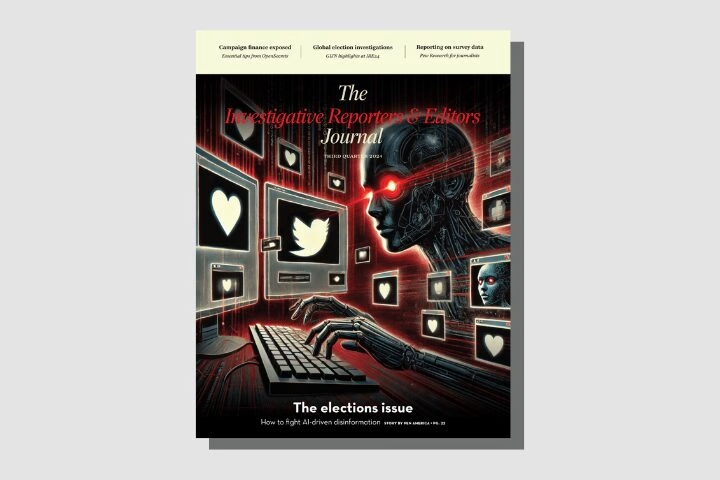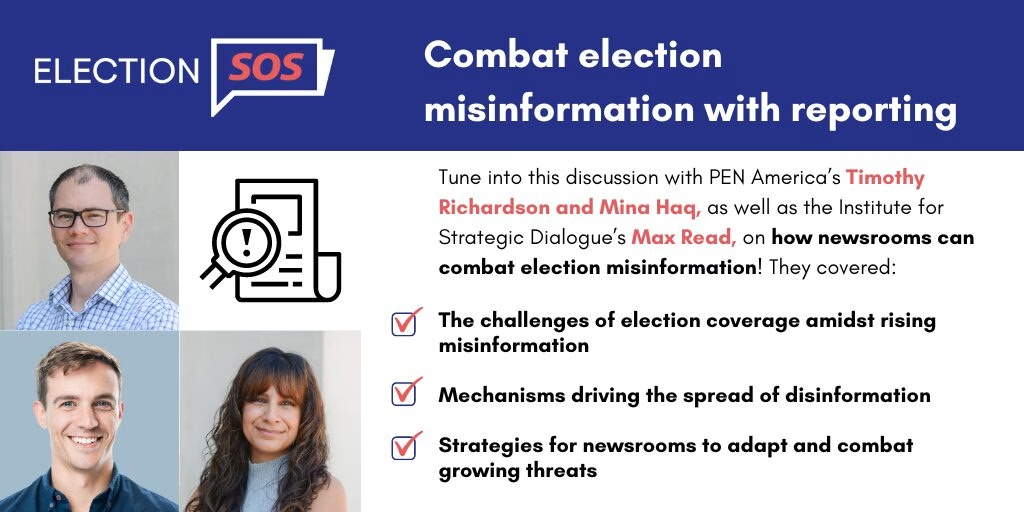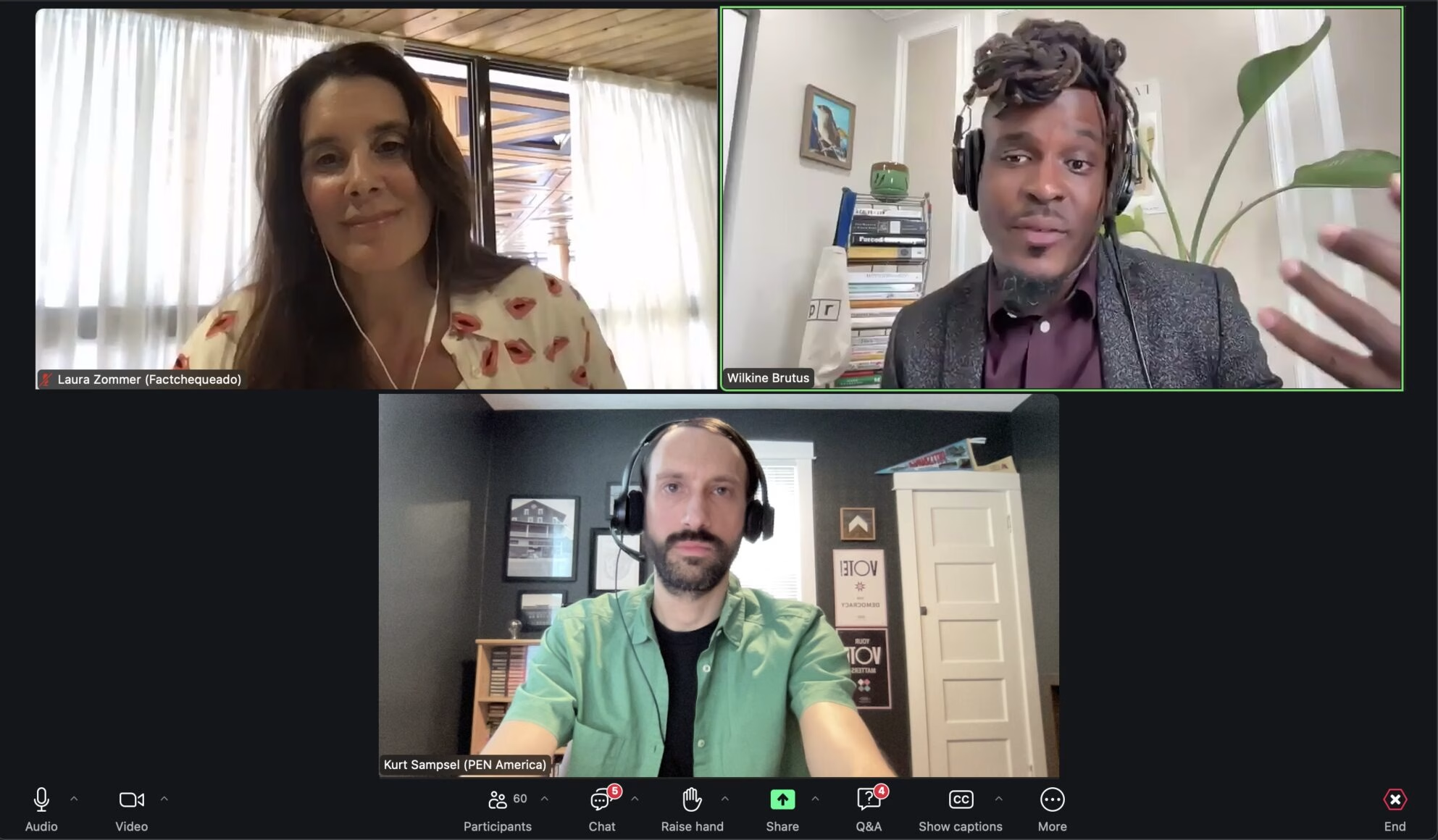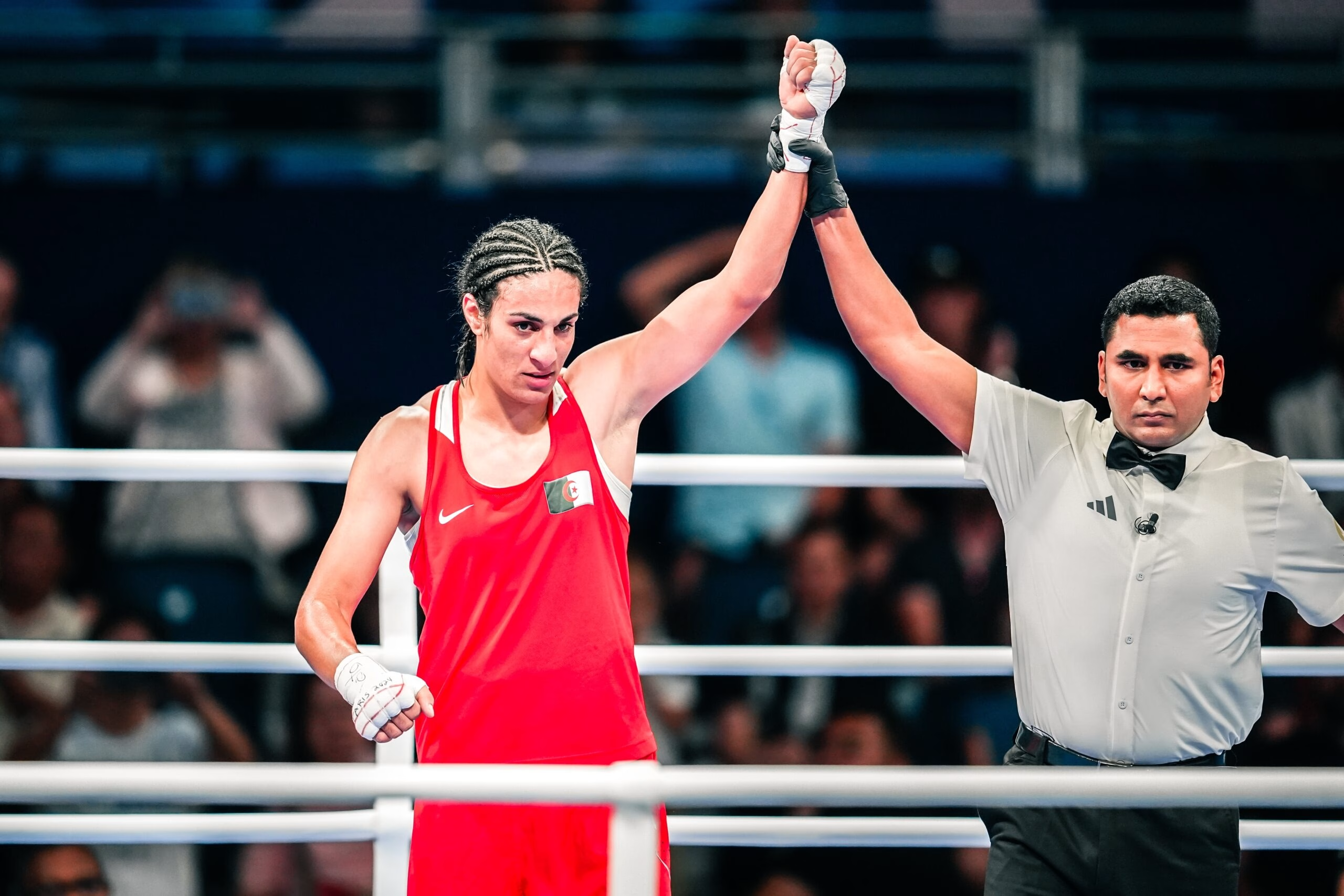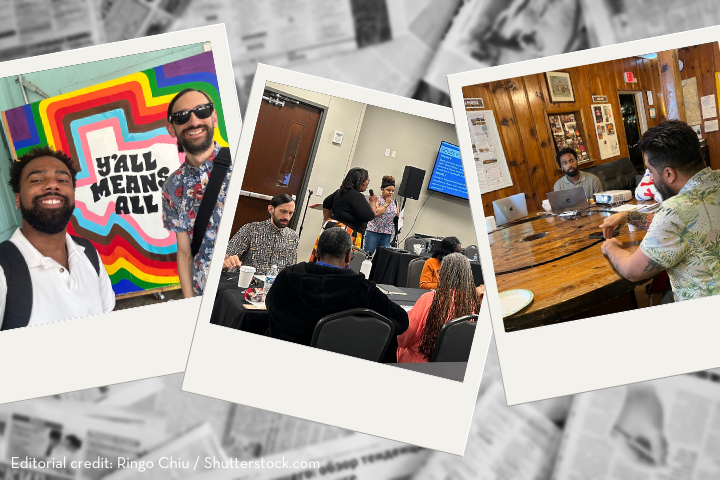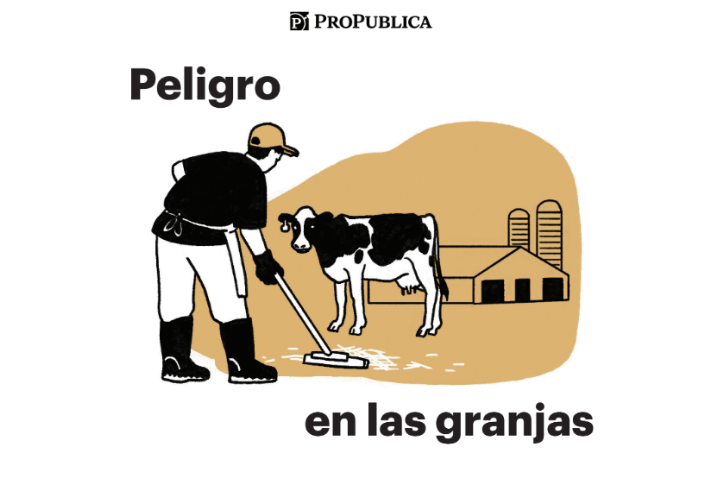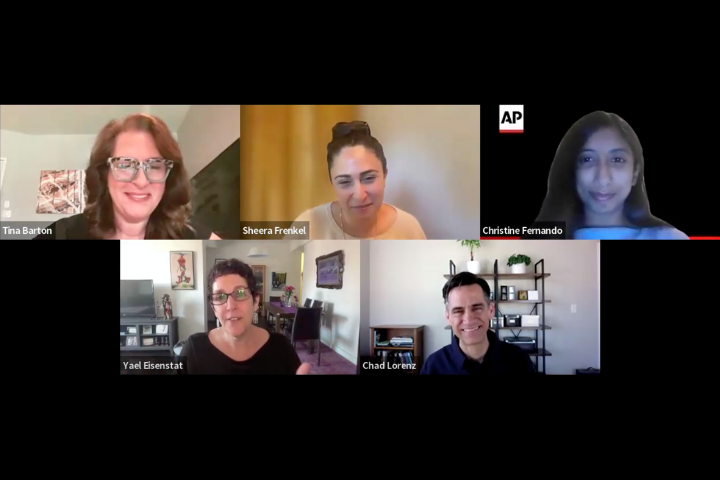This Q&A is part of a series of interviews with journalists and experts who regularly handle disinformation. The interviews will appear regularly through the election and beyond to highlight best practices, insights, case studies and tips. Our goal is to provide a resource to assist reporters and community members through the news events of 2024.
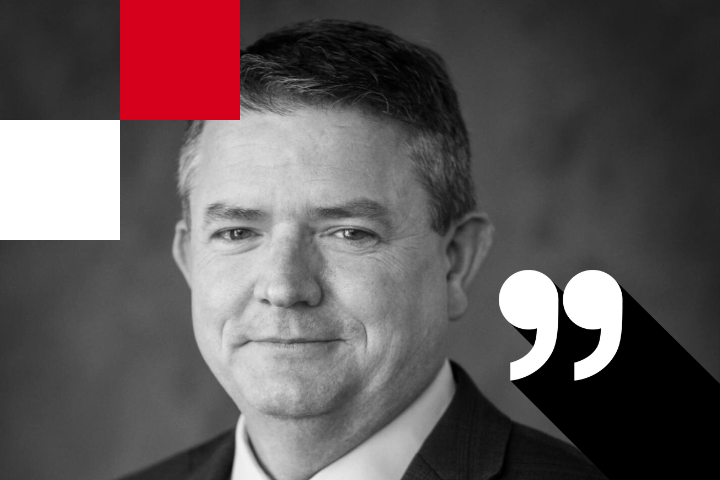
When conspiracy theories surrounding the 2020 presidential election descended on the Phoenix area, Bill Gates, a member of the Maricopa County Board of Supervisors, found himself at the center of the storm. A lifelong Republican, Gates has been outspoken about defending the results of the 2020 election, and about the threats and harassment he’s faced as a result. As he and other election officials working in battleground states look ahead to upcoming elections, Gates is clear-eyed about the threat that disinformation poses—and the power of trusted sources in combating it.
This conversation has been edited for length and clarity.
How are you approaching your work with a local focus, while also being aware there is a national platform that you’re standing on? Are you focused on Maricopa County or are you thinking about who your audience might be outside of Arizona?
We’re doing both. We understand that not only is there a significant national focus again on Maricopa County, but there’s an international focus. I mean, I’ve been interviewed by multiple outlets from Switzerland, Netherlands, France, Spain, Canada. It’s remarkable when you see the international coverage that we’re receiving in Maricopa County. We need to understand that when we engage in bad behavior as it relates to our elections, not only are we impacting our own voters here, but the rest of the world is watching. The rest of the world continues to look up to us as the world’s oldest democracy, the longest-lasting democracy, that shining city on the hill, as President Reagan once said.
When we engage in bad behavior, that’s going to also impact those who are living and voting in other democracies—or, even more importantly, those who are fighting for democracy in their own countries and who are holding up the United States as a model.
You’ve been open about death threats you’ve received following the 2020 election certification. In recent months, we’ve seen assassination attempts, bomb threats, and more affecting our politics. How are you thinking about disinformation and political violence this election season?
It’s something that I’m very focused on. When misinformation is spread—particularly misinformation that dehumanizes people or groups of people, [such as] the example of Springfield, Ohio—that really does concern me.
Not only have we had the two assassination attempts on the former president, we’ve actually had multiple incidents here in the Valley where people have shot at Arizona Democratic Party headquarters or other political offices. That is unacceptable in a democracy. It’s unsustainable. But I would go even further beyond political violence, because now we’re starting to see misinformation in connection with the hurricanes recently. It just made me sad to see the American Red Cross having to send out posts on X, where they’re responding in misinformation now. It’s a reminder that this is not just about elections.
Part of PEN America’s counter-disinformation work is empowering “trusted messengers” to discuss news consumption with people who may be susceptible to its spread. The thing that I hear so often is people are scared of having those conversations—both in terms of discomfort, but also, people are scared for their safety. How does that sense of fear shape you in the work that you do?
I would be lying if I said that I don’t deal with it. I think we all deal with it. With Covid, a lot of us got siloed, and that continues to have an impact on us. This “fear of the other” is something that exists in a way that we have not seen—or, I don’t feel like I’ve seen it in my lifetime. And I think there are others out there who would capitalize on that.
It’s not just fear, too. It’s doing something hard. It’s easy to go and speak to a group that agrees with me. That’s easy. That’s fun, right? Yeah, we agree, round of applause, Bill. But what are we accomplishing when we’re just talking to other people who feel like us? We can really accomplish things, or at least have the potential of accomplishing things when we do interact with those who don’t feel like we do.
In 2023, I was a part of a focus group here on the ASU campus in downtown Phoenix. Frank Luntz, the famous pollster, assembled a focus group of people who believed that the 2022 election here in Maricopa County was rigged. […] We went through this for two hours, and I was exhausted. It was one of the hardest things that I had ever done and it was dispiriting in some ways. But when it was over, there was a guy by the name of Chad, who I had a conversation with. We talked and talked through some things, and I said, Chad, would you be willing to come down to the Maricopa County tabulation center? I’ll give you a tour. I’ll show you around. We’ll sit with the elections director and talk about it. He said, ‘Yeah, I’ll do it.’ So, a couple weeks later, he comes down there and we meet for two hours. We showed him around, and at the end of the tour and the discussion, he said, ‘Bill, I’m convinced.”
Now, that was just one person, but my point is, we have to overcome that fear. We have to sit down and understand that, for the most part, the people who may be unwittingly spreading misinformation don’t have an evil intent. They’re just taking information they believe is accurate, and they’re accepting it as their truth—but it doesn’t mean that they’re violent people. It doesn’t mean that they’re going to hit us if we go meet with them again. It’s easier said than done, but I think that we’ve got to start having these conversations.
Get people who are willing to sit down with one another, and I think we will find that that’s going to be the best use of our time to start to chip away at this misinformation.
Lastly, what is the role of the community in combating disinformation and restoring trust in our elections?
I think community is essential to this process. Whether we’re talking about elections, whether we’re talking about hurricane relief, whatever the case may be, the experts need to get that information out there—but in the end, it’s the community that circulates the truth.
It’s like, ‘okay, we have a gentleman over here who I can’t get to.’ He will not listen to me. I can show him the verified evidence and he won’t look at it. But if I present that same information to his brother, or his mother, or someone else, he will listen. That is the community’s part in it. That’s why I believe that we’re not just banging our heads up against the wall when [experts] do put this information out. When we put the truth out there, even though this one guy won’t listen to it from me or from my colleagues, maybe he’ll listen to it from someone else.
This is a long process. This is not going to happen overnight. The damage that’s been done—now we’re going on five years between Covid and elections—the damage from all of this misinformation is going to take many years to address, to heal, and to fix. But I have great respect for [experts and trusted messengers], because this is what’s going to heal this democracy and make sure that we can celebrate this democracy for another 250 years. Because if we don’t address this, this is going to fester, and I worry there will be even more significant negative impacts from all this misinformation.

